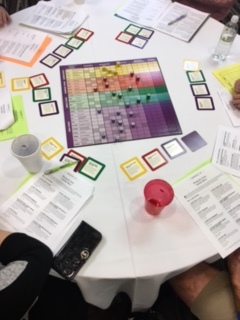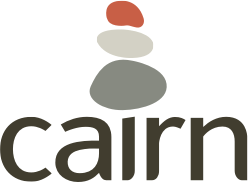By Liz Thorne, VP of Policy and Programs, Cairn Guidance
I don’t like board games. Even when I was young, not interested. I had friends who would play Monopoly for hours, DAYS even, and I just could not buy in. And Yahtzee. Just shaking dice in a cup and rolling them? How boring!

I had heard about the Systems Thinking Systems Changing™ Simulation from Jess for years. Affectionately referred to as the “Systems Game.” I heard stories of her facilitating groups of hundreds of participants through the process, and stories of participants that would recall their experience from the process at a conference years later. How could a board game teach participants about the complexities of systems change? I was skeptical.
A couple weeks ago I had the opportunity to participate in the Systems Game for the first time. In just under 4 hours and through my team’s simulated 3-year grant, we tried to implement a new school initiative in our community. We ran into barriers and made the mistakes that are so often cited in grant reports and peer-reviewed journals. We met resistance in the community that wasn’t expected. We tried to implement before we had gotten everybody on board. We didn’t link our activities to our long-range vision. At the end of our first virtual year, my team thought, “we are never going to get anything done.” How often have we uttered that at the end of a year of grant funding??
Participating in the Systems Game reiterated for me the importance of relationship building. This was a recurring theme in a recent grant application we just submitted focused on systems change in schools. It’s a one-year grant and our main focus? Building relationships and gaining community-buy in. Connecting the work of the grant with the vision of the community and connecting that to what schools are held accountable for.
We are looking forward to facilitating the Systems Thinking Systems Changing™ for grantees of the Family and Youth Services Bureau (FYSB) Adolescent Pregnancy Prevention Programs in Savannah, Georgia next week. The participants will participate in a two-day version that allows plenty of time for processing, reflection and action planning for their projects back in their communities.

Leave a Reply